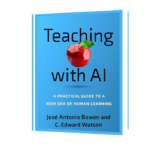In the world of billionaires, where success is measured not just in monetary terms but also in intellectual and strategic prowess, it’s intriguing to delve into the literary preferences of these titans of industry. Reading is a habit often associated with intellectual development and continuous learning, traits that many billionaires credit for their success. In this exploration, we will uncover the types of books that billionaires are known to read and how these choices contribute to their mindset, decision-making, and overall success.
Business and Strategy: The Blueprint for Success
Billionaires, being at the forefront of business and innovation, often turn to books that offer insights into successful entrepreneurship, leadership, and strategic thinking. Titles like “The Lean Startup” by Eric Ries, “Good to Great” by Jim Collins, and “The Innovator’s Dilemma” by Clayton Christensen are frequently found on the reading lists of successful business magnates. These books provide valuable lessons on how to build and sustain successful enterprises, navigate challenges, and foster innovation.
Reading business and strategy books is crucial for individuals and organizations seeking success in the dynamic and competitive world of commerce. These books serve as valuable resources that offer insights, knowledge, and strategic thinking, helping individuals navigate the complexities of the business landscape.
Firstly, business and strategy books provide a wealth of practical knowledge and best practices accumulated by successful entrepreneurs, leaders, and experts. By delving into the experiences and lessons of others, readers gain a deeper understanding of various business concepts, leadership principles, and strategic frameworks. This knowledge equips them with the tools needed to make informed decisions, solve complex problems, and effectively manage resources.
Furthermore, these books contribute to professional development by fostering a continuous learning mindset. In the rapidly evolving business environment, staying up-to-date with the latest trends, technologies, and market dynamics is essential. Business and strategy books serve as a repository of contemporary insights, enabling individuals to adapt to change, anticipate market shifts, and innovate in their respective fields.
Moreover, reading such books cultivates strategic thinking and analytical skills. The ability to formulate and execute effective strategies is fundamental for achieving long-term success. Business books often present case studies and real-world examples that challenge readers to think critically, develop strategic foresight, and apply sound decision-making principles.
In addition to individual growth, organizations benefit from a workforce that is well-versed in business and strategy concepts. A team with a shared understanding of organizational goals, market dynamics, and strategic imperatives is better positioned to collaborate cohesively and drive collective success.
Biographies and Memoirs: Learning from the Greats
- Many billionaires find inspiration in the life stories of other successful individuals. Biographies and memoirs of renowned figures, both from the business world and other domains, offer insights into the challenges they faced, the decisions they made, and the lessons they learned. Classics like “Steve Jobs” by Walter Isaacson and “The Snowball: Warren Buffett and the Business of Life” by Alice Schroeder are among the favorites of those seeking to understand the minds of industry legends.
Reading biographies and memoirs is crucial as it offers a unique window into the lives of individuals who have made significant contributions to society or faced extraordinary challenges. These books provide invaluable insights into the human experience, allowing readers to empathize with diverse perspectives and learn from the triumphs and tribulations of others. Biographies delve into the accomplishments and failures of notable figures, offering lessons in leadership, resilience, and determination. By exploring the journeys of historical figures, readers gain a deeper understanding of the social, political, and cultural contexts that shaped their lives. This knowledge can foster a more informed and critical worldview. Memoirs, on the other hand, provide a personal narrative, offering a first-hand account of an individual’s life experiences. These intimate stories can inspire and connect readers on a profound level, fostering empathy and understanding. Memoirs often highlight the universal aspects of the human condition, transcending cultural and temporal boundaries. In essence, reading biographies and memoirs is a powerful means of broadening one’s perspective, cultivating empathy, and drawing inspiration from the rich tapestry of human stories. These books serve as a reservoir of wisdom, offering readers a source of motivation and guidance in their own journeys.
Self-Help and Personal Development: Investing in Mindset
The mindset of a billionaire is often a key factor in their success, and many turn to self-help and personal development books to cultivate a winning mindset. Titles like “The 7 Habits of Highly Effective People” by Stephen Covey and “Thinking, Fast and Slow” by Daniel Kahneman delve into the psychology of success, offering valuable insights into decision-making, productivity, and personal growth.
Self-help and personal development books play a crucial role in fostering individual growth and well-being. These books provide valuable insights, strategies, and practical advice to help individuals navigate life’s challenges, enhance self-awareness, and unlock their full potential. By offering guidance on goal setting, time management, stress reduction, and interpersonal skills, these books empower readers to take control of their lives and make positive changes.
Reading self-help books promotes continuous learning and encourages a proactive mindset. They serve as a source of motivation and inspiration, helping individuals overcome obstacles and develop resilience. Additionally, these books often draw on the wisdom and experiences of successful individuals, offering readers valuable perspectives and strategies for success.
Moreover, self-help literature can contribute to mental health by addressing issues such as anxiety, depression, and self-esteem. The reflective nature of these books encourages readers to assess their habits, beliefs, and attitudes, fostering a deeper understanding of themselves.
Philosophy and Critical Thinking: Broadening Perspectives
- Billionaires, often faced with complex and multifaceted challenges, turn to philosophy to sharpen their critical thinking skills and broaden their perspectives. Works by philosophers like Friedrich Nietzsche, Immanuel Kant, and Nassim Nicholas Taleb’s “Antifragile” are known to grace the bookshelves of those who seek a deeper understanding of the world and its intricacies.
Reading philosophy and critical thinking books is crucial for cultivating intellectual depth and analytical skills. Philosophy encourages individuals to question assumptions, explore fundamental concepts, and engage in rigorous reasoning. It serves as a guide to understanding the nature of existence, morality, knowledge, and reality, fostering a reflective and contemplative mindset. By studying diverse philosophical perspectives, readers develop a more comprehensive worldview and gain insights into different cultural and historical contexts.
Critical thinking, on the other hand, is an essential skill applicable to various aspects of life. It involves analyzing information, assessing arguments, and making sound decisions. Reading books on critical thinking provides tools to navigate complex issues, separate fact from opinion, and approach problems with a logical and discerning mindset. These skills are invaluable in academic, professional, and personal settings, fostering a capacity for independent thought and informed decision-making.
In a world inundated with information, philosophy and critical thinking books act as intellectual guides, empowering individuals to think critically, communicate effectively, and navigate the complexities of our ever-changing society. Ultimately, the pursuit of these disciplines enhances one’s ability to engage meaningfully with ideas, fostering a lifelong commitment to learning and thoughtful inquiry.
Technology and Futurism: Staying Ahead of the Curve
In an era defined by rapid technological advancements, billionaires often seek to stay ahead of the curve by delving into books on emerging technologies and futurism. Works like “The Singularity Is Near” by Ray Kurzweil and “Homo Deus” by Yuval Noah Harari explore the possibilities of future technological landscapes and the impact they may have on society, business, and the individual.
For billionaires, reading technology and futurism books is paramount as it equips them with the foresight necessary to navigate and capitalize on rapidly evolving landscapes. In an era where technological advancements shape industries, staying abreast of cutting-edge developments is crucial for informed decision-making. These books offer invaluable insights into emerging trends, disruptive innovations, and potential market shifts, allowing billionaires to strategically position their investments and businesses.
Moreover, technology and futurism literature aids in cultivating a forward-thinking mindset. By understanding the trajectory of technological progress, billionaires can identify opportunities for groundbreaking ventures and partnerships. This foresight not only helps in avoiding obsolescence but also fosters a culture of innovation within their enterprises.
Additionally, as global challenges such as climate change, resource scarcity, and socio-economic disparities become more prominent, futurism books can guide billionaires in leveraging their wealth to address these issues through philanthropy or impactful investments. In essence, these readings serve as a compass for billionaires, enabling them to navigate the complexities of the future, make informed choices, and contribute positively to both their personal success and the broader societal landscape.







